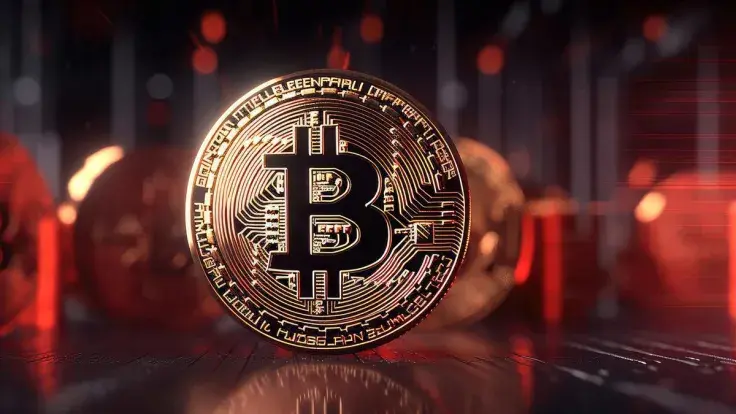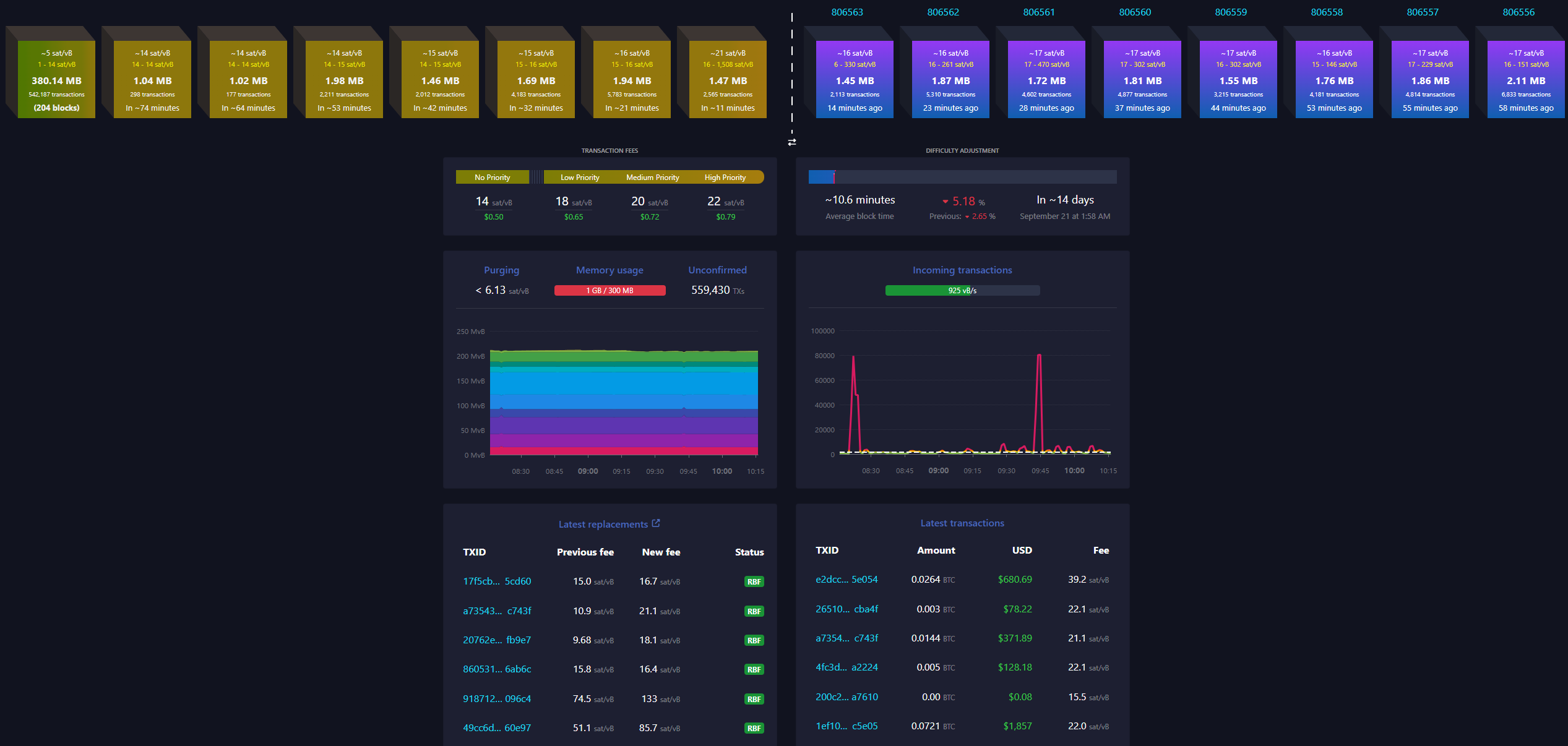
Disclaimer: The opinions expressed by our writers are their own and do not represent the views of U.Today. The financial and market information provided on U.Today is intended for informational purposes only. U.Today is not liable for any financial losses incurred while trading cryptocurrencies. Conduct your own research by contacting financial experts before making any investment decisions. We believe that all content is accurate as of the date of publication, but certain offers mentioned may no longer be available.
Bitcoin's network recently found itself clogged with a backlog of over 560,000 unconfirmed transactions. Memory usage soared past the 300 MB mark, hitting a staggering 1GB. Even transaction fees spiked, reaching over 20 sat/vB at one point. What's the story behind this sudden congestion? Let's break it down.
The culprit appears to be a phenomenon known as "fomo," or fear of missing out, triggered by the minting of sats. This minting frenzy led to a surge in transactions, causing the network to slow down as it worked through the backlog. But before you hit the panic button, let's put things into perspective.

First, it is essential to understand that Bitcoin's network is designed to handle fluctuations in transaction volume. While the current backlog is unusual, it is not catastrophic. The network's underlying architecture is robust enough to manage the situation, and it is only a matter of time before the backlog clears.
Second, high transaction fees are a temporary phenomenon. As the network works through the backlog, fees will normalize. So, if you are not in a rush to get your transaction confirmed, you might want to wait it out.
Now, let's talk numbers. How has this event impacted Bitcoin's market performance? Interestingly, the price of Bitcoin has remained relatively stable. At the time of writing, Bitcoin is trading at around $25,700 with almost no movement in the last few hours. The market seems to have absorbed the news without much drama, indicating that investors are not overly concerned about the network's health.
While the current backlog of transactions and spike in fees may have raised some eyebrows, it is not a red flag signaling the collapse of the Bitcoin network. The system is resilient and equipped to handle such hiccups.

 Dan Burgin
Dan Burgin Vladislav Sopov
Vladislav Sopov